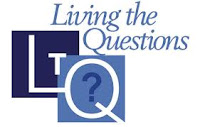A Progressive World
“Stagnation in thought or enterprise means death for Christianity as certainly as it does for any other vital movement. Stagnation, not change, is Christianity’s most deadly enemy, for this is a progressive world.” – Harry Emerson Fosdick (1922)For medieval Europeans, it was understood that famines and plagues were sent by God as punishment for sin. Wars were divine earthly retribution. Feudalism, absolute monarchy, and slavery were ordained by God. In the not too distant past those seeking medical help submitted themselves to physicians who slit the skin to “bleed” patients and let the bad “humours” escape. The Bible was cited in turning women away from the polls and relegating African Americans to church balconies. The invention of the lightning rod was vehemently denounced by clergy as unwarranted interference with God’s use of lightning.
How the world has changed! Today, we take for granted wireless phones, ease of travel, education for our children, and miracles of medicine. Daily work and life are inconceivable without our computers, cars, comfortable homes, and instant communication. We’ve long-since left the idea of a flat earth and a three-tiered cosmos behind – and we wouldn’t dream of going back a thousand years. And yet many Christians today make it proof of their faith and a litmus test of their relationship with God that they embrace thousand-year-old religious ideas – and are proud of it.
In virtually every field of human endeavor, new discoveries are praised. Not so with religion. In no area of life other than religion is the denial of progress held up as a virtue. Somehow, the way it was in days-gone-by holds a mysterious authority over people. 21st century believers faithfully recite creeds reflecting arcane fourth century questions with little thought given to the political and theological terrain that spawned the creeds in the first place.
When the Bible is held up as a final authority trumping all other arguments, it is good to remember that the early church didn’t have any Bible beyond Hebrew Scripture. It was a small gathering of people who sought a deeper understanding of and relationship with the divine. Across the Mediterranean, they gathered in small communities around the teachings and person of Jesus and thus developed the foundations of what we know as Christianity out of their own experience and insight.
What most people “know” about the Bible or understand about religion today has been cobbled together out of assumptions, insecurity, and long-held half memories that have little basis in rational thought. That being the case, the resistance some people have to expanding their religious horizons can be fiercely irrational. New understandings are feared and discredited: “don’t mess with what I’ve believed since I was a child!”
But even the Bible is full of examples of changing perceptions and descriptions of the divine/human relationship. Not only does the character of Jesus change from one Gospel to the next – sometimes profoundly – but the very nature of the Divine changes over the course of the Biblical story. While wandering in the desert, the Hebrews carried God around in a box. When that proved vulnerable to enemy attack, God was promoted to a throne in the sky above. The God known as Yahweh evolves from a tribal mountain God beating up on Pharaohs and passing down culture-bound rules into a universal God who shows grace to all – a God that Paul had difficulty convincing James, the brother of Jesus, and Peter himself to accept.
The whole of scripture is awash with change, change, and more change. Yet the fallacy that Christianity is a static belief system offering absolute truths for the true believer remains the overwhelmingly predominant message preached and believed by many in the West today.
Questions to be considered in light of the video and readings:
According to Varghese, what are the characteristics of being “authentically” Christian?
If progressive Christians need to “get a message” and be intentional about sharing the faith that we have, what are some of the core points of that message?
Describe some of the ways Townes suggests that we can “live our faith.”
According to Mel White, what do we need to “let go” of?
Why might claiming “what we’re not” be a bad strategy for progressive Christians?
Elaborate on how being centered in “Spirit and Wisdom” and “Compassion and Justice” express the core values of the Christian Life.
According to Brueggemann, what are the three definitive marks of the church which have been kept “secret” and for which so many have been hungering?
Why is “being in solidarity with the poor” often a characteristic of vital faith communities?
Describe what Flunder calls “the last real blind spot on the Body of Christ.”
Levine suggests that we “try to see through each other’s eyes” and still reach an agreement that leads to wholeness for real people. Discuss.

No comments:
Post a Comment